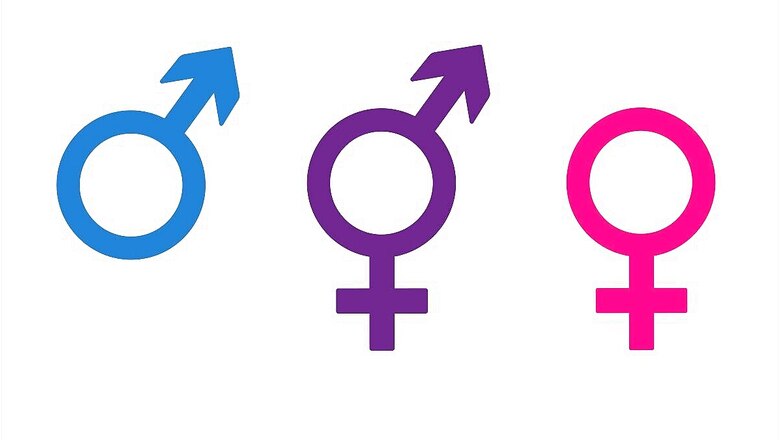
views
In a country as diverse as India, representation and participation from all communities, especially the marginalised, are essential in shaping inclusive policies. For the LGBTQ+ community, this is particularly important, as the issues they face are often unique and require nuanced understanding. One such issue that affects the transgender and gender non-conforming individuals within the LGBTQ+ community is the accessibility to and safety of public toilets.
This is one of those areas where lived experience really matters. Those of us who identify as cisgender have no real understanding of the sort of fear and anxiety that most transgender, intersex and non-binary people go through when visiting gendered toilets. If we truly want to create spaces where these individuals feel safe and welcome, we need to consult them, and wherever possible, involve them in the decision making.
For a change to be successfully implemented and accepted by the general public, we need to take a multi-pronged approach. Stakeholders including the GoI, NGOs, universities and educational institutions, and even corporate India need to work with the LGBTQ+ community to ensure that their rights are adequately represented, their points of view are considered and that the messages that are going out to the larger public resonate right.
NGOs and Grassroots Activism is Moving the Needle
The fight for LGBTQ rights in India is largely led by grassroots movements and the current push for marriage equality is only the latest example. The fight to repeal Article 377 reads almost like an epic in itself, and is a testament to the staying power and effectiveness of grassroots movements in India.
It all began in earnest in 2001, when the Naz Foundation, an HIV advocacy group in Delhi, filed one of the first legal challenges to the colonial-era law. It took 17 years of advocacy and litigation, but in 2018, a more progressive bench revisited the issue. They heard challenges from more than two dozen people, including leading hoteliers, a prominent chef, an Indian classical dancer and many others. The court unanimously struck down the law and apologised for the delay in ensuring rights for LGBTQ+ people.
Steps the Govt of India has taken
The legal aspect is an essential component in this movement. The landmark judgement by the Supreme Court of India in 2014, which recognized transgender persons as a third gender, has been foundational for subsequent policies. This recognition has spurred dialogue around gender inclusivity in public spaces, including toilets.
In Delhi, the government has taken a significant step towards inclusivity by mandating that all its departments, offices, district authorities, municipal corporations, state-run companies, and the Delhi Police have separate and exclusive washrooms for transgender persons. This order not only facilitates the establishment of transgender toilets but also states that transgender individuals will continue to have the option to use gender-based toilets corresponding to their self-identified gender.
Another noteworthy endeavour in India is the Swachh Bharat, Swachh Vidyalaya (SBSV) initiative, launched in 2015. This movement aims to provide universal access to gender-segregated toilets in all 1.2 million government schools across the country. Beyond physical infrastructure, the SBSV initiative seeks to enhance the Water, Sanitation, and Hygiene (WASH) curriculum, revolutionising teaching methods and fostering hygiene practices within schools. Additionally, this campaign encourages community participation and ownership of water and sanitation facilities, emphasising the collective responsibility we bear towards fostering a clean and inclusive environment. In collaboration with the Government of India, UNICEF has also played a pivotal role in supporting the SBSV initiative. Their partnership aims to ensure that every school in India possesses well-maintained water, sanitation, and hygiene facilities.
Furthermore, the Ministry of Housing and Urban Affairs (MoHUA) launched the Toilets 2.0 campaign on World Toilet Day in 2022. This visionary campaign envisions a transformative change in public and community toilets across urban India, uniting citizens and Urban Local Bodies in collective action. By focusing on sustainable models of toilet usage and maintenance, the Toilets 2.0 campaign aspires to revolutionise the face of sanitation in urban areas, ensuring inclusivity and dignity for all.
Educational Institutes are Setting the Bar
The National Council of Educational Research and Training (NCERT) has taken a significant step in promoting gender-neutral environments in schools. Their manual, designed to sensitise teachers about the experiences of transgender students, advocates for the creation of gender-neutral toilets, gender-neutral uniforms, and mixed rows of students—blurring the lines that segregate boys and girls. Through this approach, the NCERT manual radiates empathy and understanding, fostering an educational environment where everyone feels seen, heard, and valued.
There are several inspiring examples of educational institutions taking proactive steps. One notable case is the Indian Institute of Technology (IIT) Bombay, where gender-neutral restrooms were installed on campus as early as 2017. This initiative was championed by Saathi, an LGBTQ+ student support group at IIT Bombay, showcasing the power of student-led advocacy in fostering inclusivity.
Tata Institute of Social Sciences (TISS) Mumbai, also introduced gender-neutral restrooms on its campus in 2017. The effort was spearheaded by Queer Collective, an LGBTQ+ student group at TISS Mumbai, emphasising the importance of student-driven initiatives in creating safe and inclusive spaces for all.
Today, several Indian universities are recognizing the need for gender-neutral toilets. Institutions such as IIT Delhi have taken the initiative to inaugurate gender-neutral washrooms on their campuses. In fact, IIT Delhi now boasts 14 such facilities. Additionally, Tezpur University in Assam and the National Academy of Legal Studies and Research (NALSAR) in Andhra Pradesh have also embraced gender-neutral washrooms, recognizing the importance of providing an inclusive environment for all students. NALSAR goes a step further by adopting a gender-neutral trans policy and the recognition of a gender-neutral title, “Mx,” on student’s certificates, paving the way for other institutions to follow.
Corporate India is Fast Becoming an Ally
Harpic, India’s leading brand in the lavatory care segment, has worked on several initiatives that are adjacent to the Swachh Bharat Mission – for instance, the establishment of Harpic World Toilet Colleges. Harpic has also taken the lead in designing campaigns and initiatives that not only focus on sanitation but also inclusivity.
With open hearts and a deep understanding, Harpic has taken remarkable strides to ensure that its products cater to the rich tapestry of society, which includes the LGBTQ+ community. Recognizing that education is the key to transforming attitudes, Harpic has launched inspiring campaigns that illuminate the beautiful diversity of gender identities. Through these powerful initiatives, society is awakened, nurtured, and encouraged to create environments where acceptance thrives.
Mission Swachhta aur Paani, is the pinnacle of such communication. A collaboration between Harpic and News18, Mission Swachhta aur Paani transcends the concept of cleanliness to recognise the profound significance of toilets for the LGBTQ+ community. This exceptional mission is built upon the firm belief that clean and inclusive toilets are vital for fostering a society that embraces and empowers us all, unconditionally. With unwavering dedication, Harpic and News18 actively include and advocate for the LGBTQ+ community, propelling the message that every individual deserves access to safe and accepting spaces, where their dignity is upheld, and their presence is celebrated.
To amplify their impact, Harpic joined hands with esteemed organisations like WaterAid India, Sulabh International, Akshay Patra Foundation, Samhita Social Ventures, and many more. Together, they constructed and renovated toilets across India, including gender-neutral facilities in schools, colleges, railway stations, and other public spaces. Through diverse media channels, including television, radio, print, digital platforms, and social media, Mission Swachhta aur Paani campaign spreads awareness about the significance of inclusive toilets, ensuring that its message resonates deeply with people.
Strength Through Diversity
To quote PM Narendra Modi, one of India’s greatest strengths is its diversity. We are a country where language, culture, clothing and cuisine changes every few hundred kilometres. We contain multitudes, and that has always been part of our national identity.
Each one of us has layers of identity – we are Indian; but we are also Punjabis, Kannadigas, Maharashtrians, Bengalis, Sindhis, Parsis and many more. We are Hindi speakers and Tamil speakers and speakers of Dongri, Kacchi, Odiya, Bhojpuri, and many more. We are Hindus, Muslims, Buddhists, Christians, Sikhs, Parsis, agnostics, Khojas, atheists, and many more. We are straight, lesbian, gay, pansexual, bisexual, and many more. We are women, men, transgender, intersex, non-binary and many more.
There is room for all of us. We can, and must, make room for all of us. Diversity isn’t a value we need to aspire to, it’s who we are anyway. It’s when that diversity is reflected in our boardrooms, in our legislative assemblies, in our courts, in our classrooms, in our toilets, that we create a society that is strong at its core. When people from all backgrounds and walks of life are our classmates, best friends, colleagues, teammates and family, who will we ‘other’?
Wouldn’t we all like to live in a world where opportunists can’t ‘divide and rule’ us? Where we can stand up for one another, firm in the belief that others will stand up for us in turn? Where we are all welcome, and we all belong?
We can, together. There is much work to be done, but we are 1.4+ crore people and many hands make light work. Join us here, to learn how you can be a part of this national transformation.
















Comments
0 comment